My parents saw one of the authors of The Emotional Life of Your Brain, Richard Davidson, Ph.D., interviewed on Charlie Rose’s TV show and recommended the book to me, as they know the ongoing struggles I have had with my brain. Davidson and Sharon Begley share that there are six dimensions to Emotional Style:
- Resilience
- Outlook
- Social Intuition
- Self-Awareness
- Sensitivity to Context
- Attention
Resilience is my issue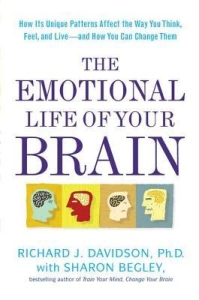
There is a self-assessment in the book that allows you to identify where you are on the continuum for each of the six dimensions. While it’s not “bad” to be in a certain place on the continuum for a dimension, where you are on each dimension may cause a person to have more issues than others. I knew as soon as I learned about Resilience, how slowly or quickly you recover from adversity, that I was not what you’d call “resilient.” I learned that if you fall into the Slow to Recover end of the spectrum, you cannot easily shake off negative emotions such as anger, sadness, or anxiety. When I took the self-assessment, I scored a 9 out of 10 on Resilience, meaning I’m just one point away from being at the extreme end of Slow to Recover.
And it’s OCD fault
I completely blame my “slowness to recover” on my OCD.
My OCD thrives off of emotional trauma. It feeds off of negative emotions, using them to twist my thinking in ways that perpetuate fear. One of the ways it has been able to do this is by hijacking a finely-tuned system for its own use—the flight-or-flight response. The fight-or-flight response mobilizes us to protect ourselves in case of danger, so that we can either run away from a threat (flight) or fight the attacker (fight). It’s a very useful response in cases of real danger. And OCD wants me to think everything is a real danger. If it can keep me in fight-or-flight mode, it does a better job at perpetuating its own existence.
For instance, my OCD will urgently say to me, “Did you feel that bump in the road back there? That was probably from your car running over someone’s pet dog. The dog probably got loose and no one knows it’s gone and it’s just lying there in the road bleeding and dying by itself. You HAVE TO GO BACK and check on it or it will be all your fault when it suffers and dies!”
My OCD tells me that I need to do a ritual (go back and check to see if I hit the dog) to deal with this thought. That this thought is dangerous, a red alert, a four-alarm fire that needs to be dealt with now!!! In order words, my OCD sets off the fight-or-flight response. Now, even though I know what to do when this thought occurs—exposure and response prevention (ERP) therapy, I still feel all the emotions and physiological responses that come when the fight-or-flight response is triggered by that thought. Fear. Rapid heartbeat. Tensed muscles.
 So I do my ERP for this obsession, noticing those emotions and physical feelings, and pulling off the road and stopping my car to do the ERP: “Yes, it is possible that I hit a dog back there. I of course would not want to hit a dog but I cannot control everything in life and it may have happened. However, I need to get over my OCD and so I’m going to take the risk that I did hit a dog and keep driving anyway, without going back to check, knowing full well I may have hit the dog. But I may not have, too. I am not going back to check so I will never know and I need to live with this uncertainty. ” I continue saying my script and focusing my anxiety until it falls. Then I continue driving on my way.
So I do my ERP for this obsession, noticing those emotions and physical feelings, and pulling off the road and stopping my car to do the ERP: “Yes, it is possible that I hit a dog back there. I of course would not want to hit a dog but I cannot control everything in life and it may have happened. However, I need to get over my OCD and so I’m going to take the risk that I did hit a dog and keep driving anyway, without going back to check, knowing full well I may have hit the dog. But I may not have, too. I am not going back to check so I will never know and I need to live with this uncertainty. ” I continue saying my script and focusing my anxiety until it falls. Then I continue driving on my way.
Danger, danger everywhere!
But even though I do the ERP and it makes my anxiety go down and the obsession subside, sometimes I can still feel the after effects of the negative emotions and physical sensations for hours. Same thing happens if I get in a disagreement with someone, or if something else unpleasant happens. It’s like a negative feeling haze or hangover—just a general feeling that something isn’t right that lingers, even though the situation is done and in the past.
This feeling of unease is compounded by the fact that I have some PTSD-like hypervigilance as well, with my OCD constantly pointing out how unsafe the world is. It can bombard me with thoughts like, “What if that guy in the produce aisle over there has a gun and starts shooting….how would you get away? Did you see that nail sticking out beside that door? That’s very unsafe….someone could cut themselves on it and get tetanus. Do you know how many people die on the Georgia interstate system every year? You should drive more carefully or you could become a statistic!” As you can imagine, life can be pretty unpleasant when you are tuned to the radio station WDNG, the home of “All Danger, All the Time!”
I have a hard time recovering from the effects of these thoughts and by extension, really any negative emotion. I will just feel rotten for hours. And I have never been able to figure out how to deal with that, because while doing ERP helps reduce or eliminate the obsessions, it has not gotten rid of the bad feeling hangover afterward.
Mindfulness-Based Stress Reduction can help
Fortunately, Davidson and Begley have a research-based suggestion for how to improve your Resilience and become Fast to Recover—mindfulness. In the research that Davidson and Jon Kabat-Zinn, Ph.D., did on a program that Kabat-Zinn developed called Mindfulness Based Stress Reduction (MBSR), the results showed actual changes in the brain in those taking part in the MBSR program. On p. 204 of the book, the authors explain:
Mindfulness training alters these habits by making it more likely that one neuronal pathway rather than another will be used. If the habitual response to a setback had been for neuronal signals to travel from the frontal cortex, which figures out the meaning of an experience, to the limbic system, where the amygdala attaches an intense negative emotional valence to that experience, then mindfulness can create a different neuronal pathway. The same experience is still processed by the front cortex, but the signals do not reach the amygdala (or at least fewer of them do). Instead, they peter out, like a bad mood evaporating during a day when everything seems to go right. The result is that what had been a stressful experience or setback no longer triggers a feeling of anxiety, fear, or fatalistic capitulation.
There is no question, I needed to do this MBSR program, because my Slow to Recover Resilience style negatively impacts the quality of my life. So I bought Full Catastrophe Living, by Jon Kabat-Zinn, Ph.D. and it has changed my life. Read my Aha! Moment about Full Catastrophe Living to find out how.
Have you read Davidson’s and Begley’s book? If so, what is your Emotional Style? Are there any parts of your style that you think are driven by your OCD? If so, how do you manage them? Please use the form below or the Contact Me form to let me know your thoughts. I look forward to hearing from you!

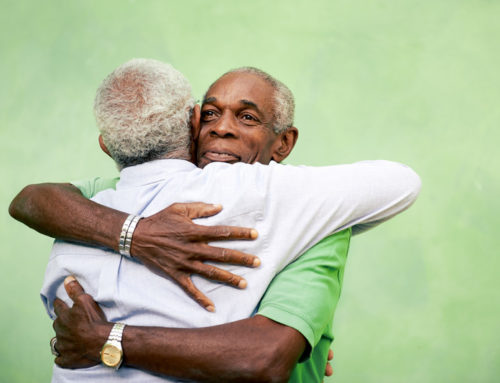
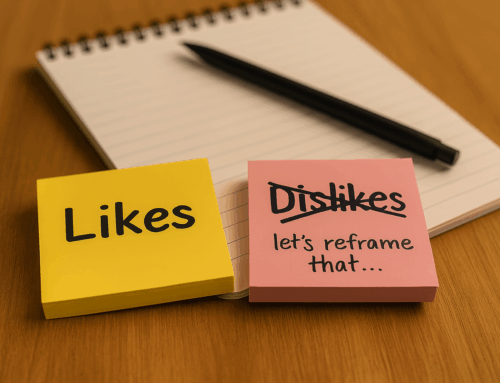
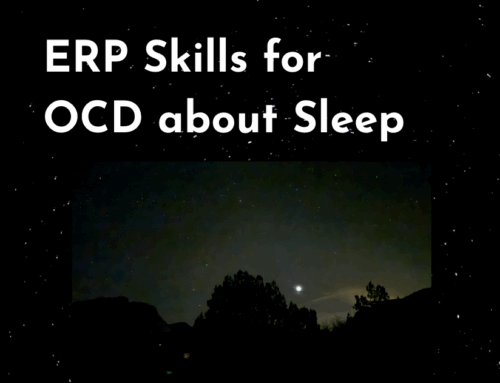
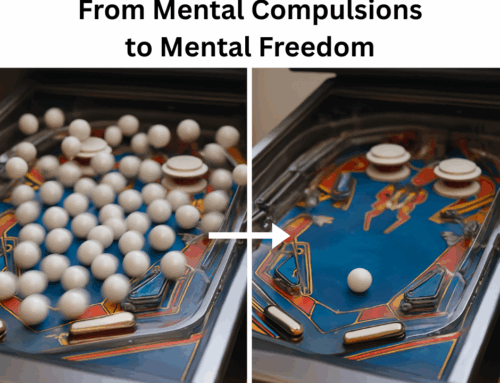

Leave A Comment